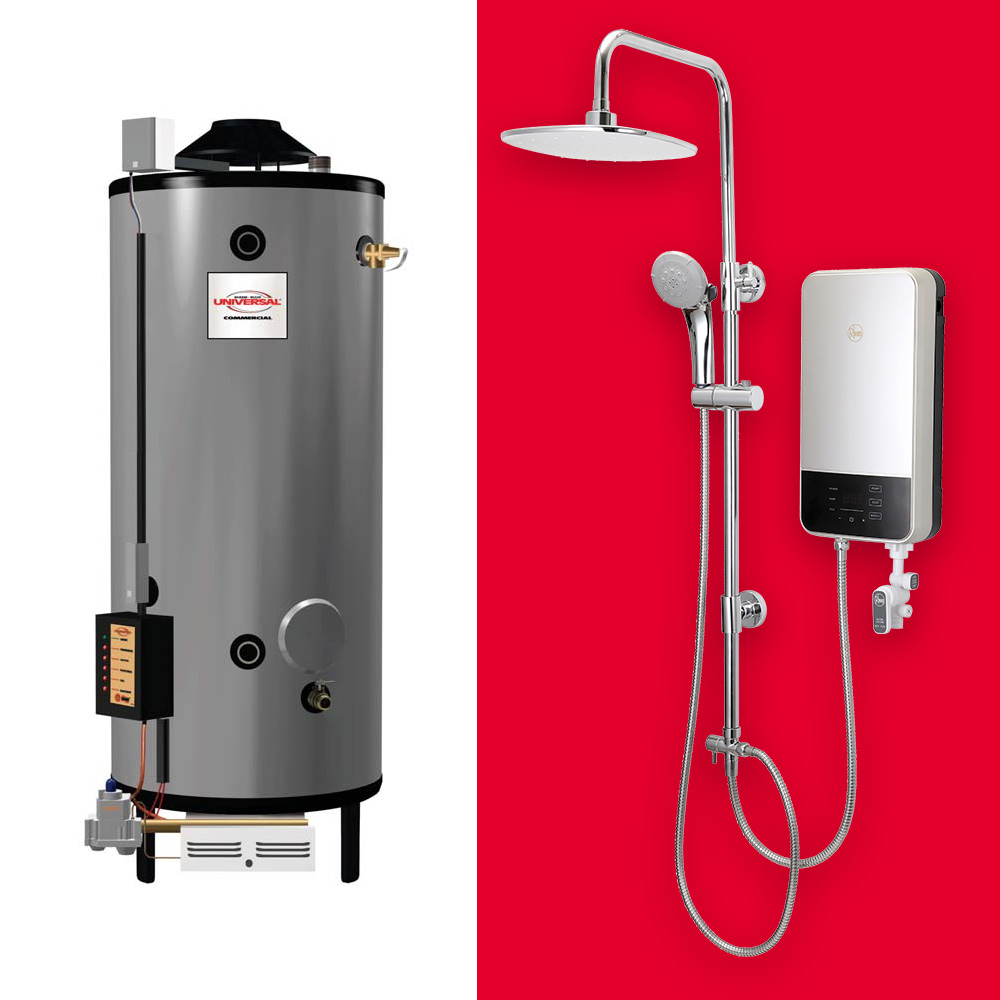on demand water heater gas vs electric
Today, we are going to discuss the key differences between electric and gas water heaters. Water heaters play a vital role in our daily lives, providing us with hot water for various purposes. Whether you are taking a warm shower, doing the dishes, or washing clothes, having an efficient water heater is essential.
Electric Water Heaters: A Convenient Choice
Electric water heaters are widely used in households across the globe, including Asia. They operate on electricity and offer several advantages. Let's explore why electric water heaters are a convenient choice:

1. Easy Installation: The installation process for electric water heaters is relatively simple. Unlike gas water heaters, which require gas lines and ventilation, electric water heaters can be installed anywhere with access to an electrical outlet.
2. Energy Efficiency: Electric water heaters are known for their energy efficiency. They have a higher energy factor compared to gas water heaters, meaning they convert a greater percentage of energy into hot water. This can lead to cost savings on your electricity bills in the long run.
3. Safety: Electric water heaters eliminate the risk of gas leaks and carbon monoxide emissions, making them a safer option for households. They also have built-in safety features, such as temperature control systems and pressure relief valves, to prevent overheating or excessive pressure buildup.
Gas Water Heaters: The Traditional Choice
Gas water heaters have been the traditional choice for many households, especially in Asian countries. Let's take a closer look at why gas water heaters continue to be popular:

1. Fast Heating: Gas water heaters typically heat water faster than electric water heaters. The high BTU (British Thermal Unit) rating of gas enables quicker heating, ensuring hot water is readily available when needed.
2. Lower Operating Costs: In many regions, gas is more affordable than electricity, resulting in lower operating costs for gas water heaters. If you have access to natural gas, using a gas water heater can be a cost-effective choice.
3. Uninterrupted Supply: Gas water heaters are not dependent on electrical power, making them reliable even during power outages. This is particularly beneficial in areas with frequent electricity disruptions.
Which Water Heater Should You Choose?
Choosing between an electric and gas water heater depends on various factors, including your specific needs and circumstances. Here are some additional considerations to help you make an informed decision:
1. Cost: While electric water heaters may have a higher upfront cost, they tend to be more energy-efficient in the long run, resulting in potential savings on your utility bills. Gas water heaters, on the other hand, often have lower initial costs but may be more expensive to operate if gas prices are high.
2. Availability: Before deciding on a gas water heater, ensure that a reliable supply of natural gas is available in your area. If gas lines are not accessible, an electric water heater may be a more feasible choice.
3. Space: Gas water heaters require ventilation and a dedicated area for installation. If you have limited space or live in an apartment, an electric water heater may be a more practical option.
4. Maintenance: Gas water heaters may require more frequent maintenance compared to electric water heaters. It is essential to consider the cost and effort involved in maintenance when making your decision.
Ultimately, the choice between an electric and gas water heater depends on your personal preferences and circumstances. Both options have their advantages and considerations. Assess your needs, budget, and available resources to determine which type of water heater is best suited for you.
In conclusion, both electric and gas water heaters have their own set of benefits. Electric water heaters offer convenience, energy efficiency, and safety, while gas water heaters provide fast heating, potential cost savings, and uninterrupted supply. Consider your requirements and factors like cost, availability, space, and maintenance before making a decision. Choose the water heater that best fits your needs, ensuring a steady supply of hot water for your everyday activities.

